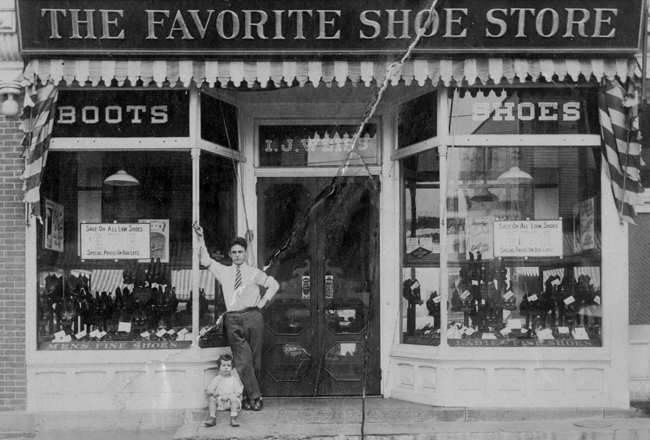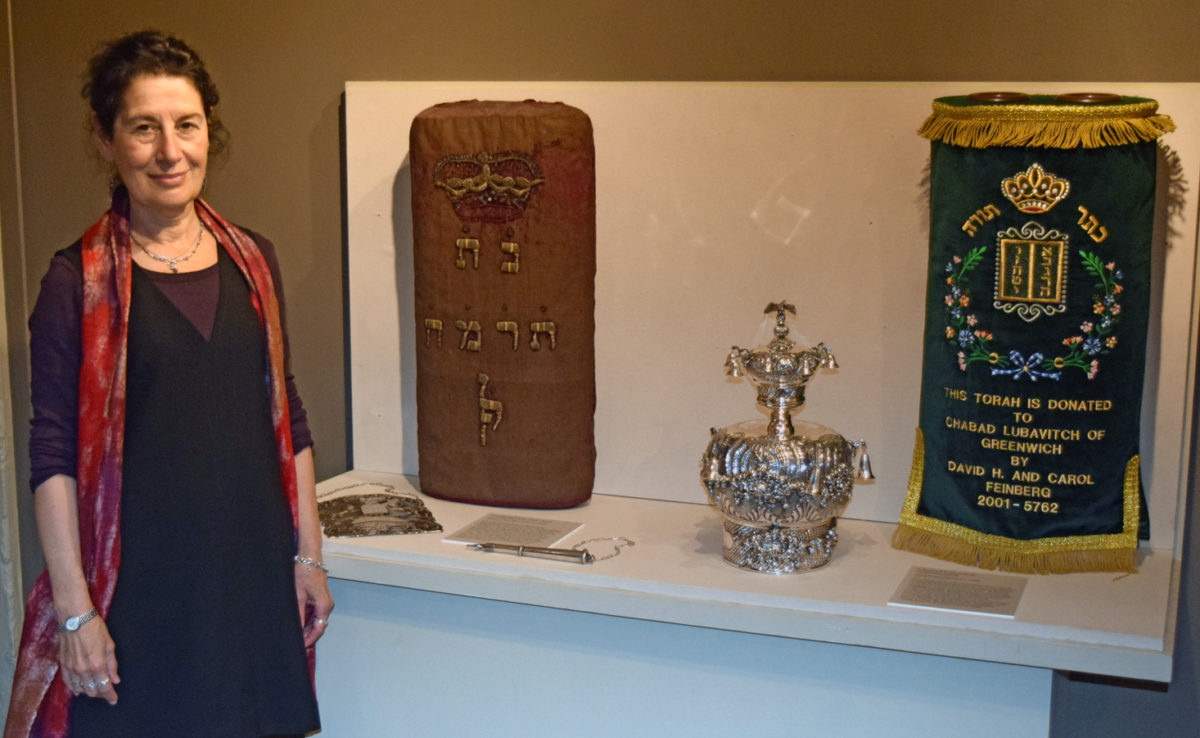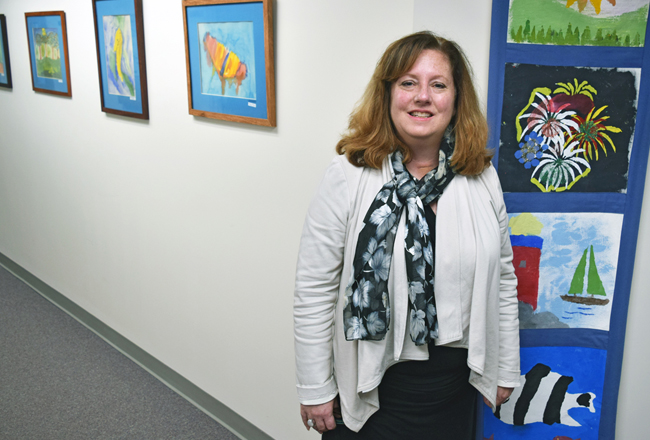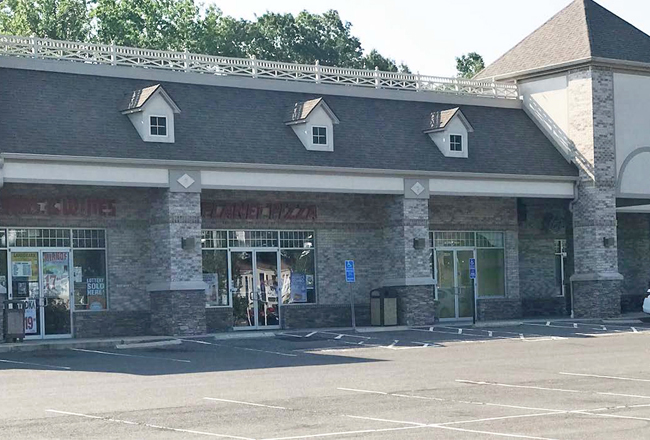
From the 1880s through the 1910s, an estimated 2 million Eastern European Jews escaped persecution and poverty in their native lands by immigrating to the U.S. A small number of these immigrants found their way to Greenwich and soon became prominent figures in the town”™s commercial activities.
“An American Odyssey: The Jewish Experience in Greenwich,” a Greenwich Historical Society exhibit that opened Nov. 15, details the little-known story of how these immigrants and their American-born children played a significant role in the local business community. For the exhibitor”™s guest curator, Ann Meyerson, gathering information for the exhibit required an extra level of research.
“There are no secondary sources written on Greenwich,” said Meyerson, an independent museum curator who recently co-curated “The First Jewish Americans: Freedom and Culture in the New World” at the New York Historical Society. “It was uncharted territory. I had to construct this from primary sources. The key to unlocking that story was a treasure trove of oral histories that the Greenwich Library had done in the 1970s. They interviewed the first generation, the children of these founding families. And I love oral histories and first-person accounts because their voices bring the stories to life.”

Photo by Phil Hall
A Jewish presence in Greenwich can be traced to the Colonial era, when members of the Hays family in 1728 purchased property that became the site of the Bush-Holley House, now part of the Greenwich Historical Society. By the early 19th century, however, Greenwich had no Jewish community. When the great wave of Eastern European Jewish immigrants arrived, many of them lacked the skills needed in a country where agricultural and manufacturing work dominated.
“They weren”™t farmers because they were not allowed to own land in tsarist Russia,” said Meyerson. “They didn”™t do manual labor, they didn”™t do factory work. They were small shopkeepers, as they had been for centuries.”
Meyerson decided to focus the exhibit on six Jewish families who would become the town”™s leading business owners: the Bennett, Cohen, Marks, Taylor, Tunick and Weiss families. All of them arrived in New York City and made the trek out of the city into Westchester in search of a better life.
“Four of the six families came to Greenwich through Port Chester,” Meyerson said. “It wasn”™t a direct route and we”™re not really sure how the families originally got to Port Chester. But probably what happened was that some relative had come to Port Chester, which was a growing industrial town, and there was a sizable Jewish community there with a synagogue. From there, they peddled and got into Greenwich and decided to open a store there.”
The first Jewish-owned business in Greenwich was Meyer Cohen”™s grocery store, which opened in 1899 on Greenwich Avenue. I.J. Weiss opened The Favorite Shoe Store in 1909, which remained in business for 91 years.
Meyerson said it was difficult to determine the exact size of Greenwich”™s Jewish community during the first part of the 20th century, because the census did not measure population based on religion. However, the community grew large enough to warrant the 1908 establishment of a Jewish cemetery and the 1916 opening of the Greenwich Hebrew Institute, which doubled as a synagogue and a school. Greenwich did not have a standalone synagogue until Temple Sholom”™s opening in 1955.
Although several Jewish residents opened grocery stores, their own kosher dietary needs were not served in Greenwich. “They went to Port Chester,” Meyerson said. “With some of the oral histories, people said, ”˜I remember my father went to Port Chester on a trolley to buy kosher meat. You couldn”™t buy it here.”™”
Meyerson noted that while Greenwich”™s Christian community had no problems doing business with Jewish merchants, there was less enthusiasm welcoming the Jewish residents as neighbors. Although the first wave of storekeepers lived in apartments above their places of business, efforts to assimilate into the wider community were frequently blocked by restrictions in the sale or rental of homes to Jews. Real estate restrictions persisted well into the 1960s and only ended completely with the Fair Housing Act of 1968.
While the initial immigrants were willing to overlook many prejudices, the first generation of American-born Jewish residents bristled at anti-Semitic comments and incidents on the street and at school and public beaches.
“Those who arrived at the beginning of the 20th century did not talk about extreme anti-Semitism,” said Meyerson. “They lived on Greenwich Avenue, they had their lives, they kept to themselves, they went to Port Chester to see their families and they didn”™t try to get housing. But the next generation that grew up here did talk about it.”
One member of the first generation of Greenwich”™s Jewish community, Carl Bennett, achieved business success as an indirect result of local prejudice.
“He went into the Army in World War II, came out, couldn”™t get housing in Greenwich, moved to Stamford, but opened a store in Port Chester,” Meyerson said. The store, which Bennett started in 1951 with his wife Dorothy, was the discount retailer Caldor, which later grew into a publicly traded 150-store regional chain.
In curating the exhibit, Meyerson located a wealth of rare objects from the merchants”™ businesses, ranging from a vintage shoe box from the Favorite Shoe Store to the driver”™s bell from The Tunick brothers”™ original junk collection truck. A series of iPads enable visitors to listen to the oral histories that served as the foundation of Meyerson”™s research.
Perhaps the most poignant object on display is the sole item that does not come from Greenwich: a mid-18th century Torah from Poland, which was donated to Greenwich’s Congregation Shir Amiand serves as a reminder of what the immigrants left behind. The original congregation that gained spiritual comfort from this Torah lived in a Polish village whose Jewish residents perished in the Holocaust. The Torah, which was hidden by Catholic villagers during the war, is the only surviving trace of that Jewish community.
“An American Odyssey: The Jewish Experience in Greenwich” runs through April 15 at the Greenwich Historical Society, 39 Strickland Road, Cos Cob.






















